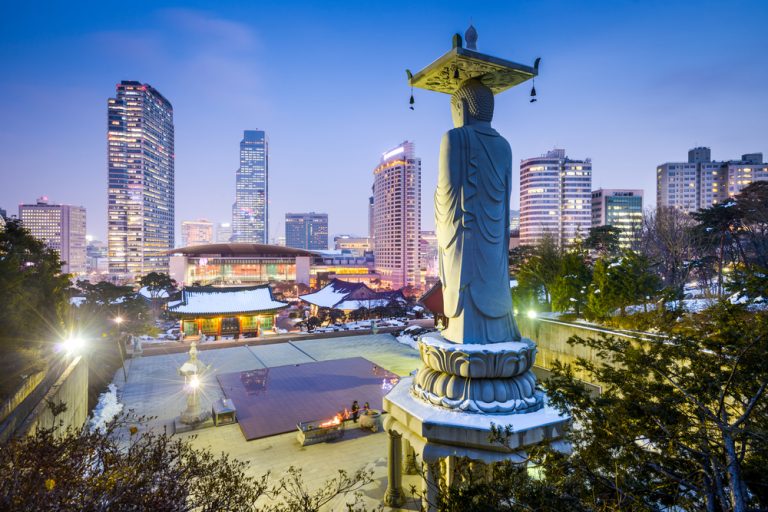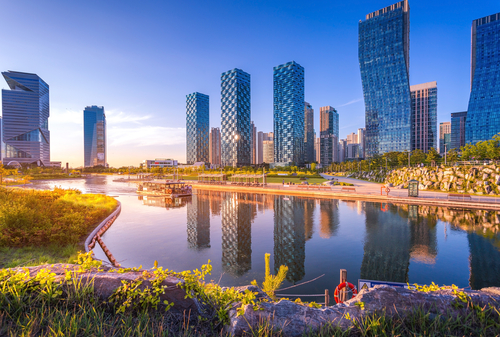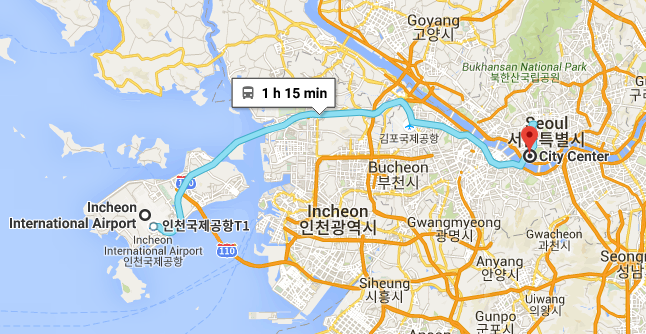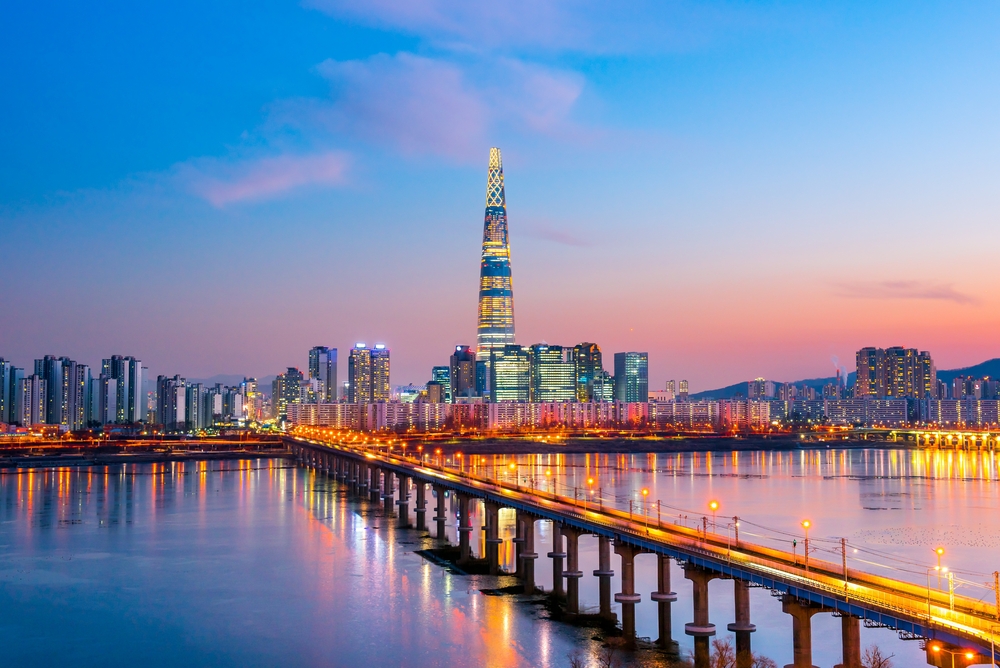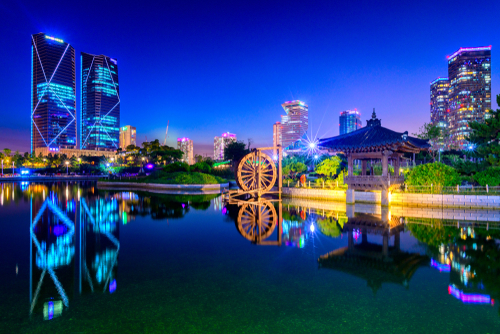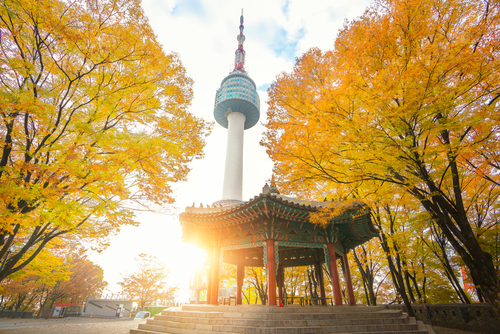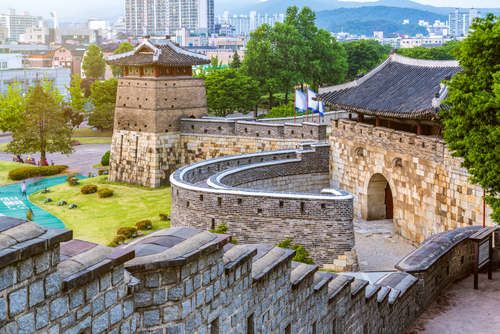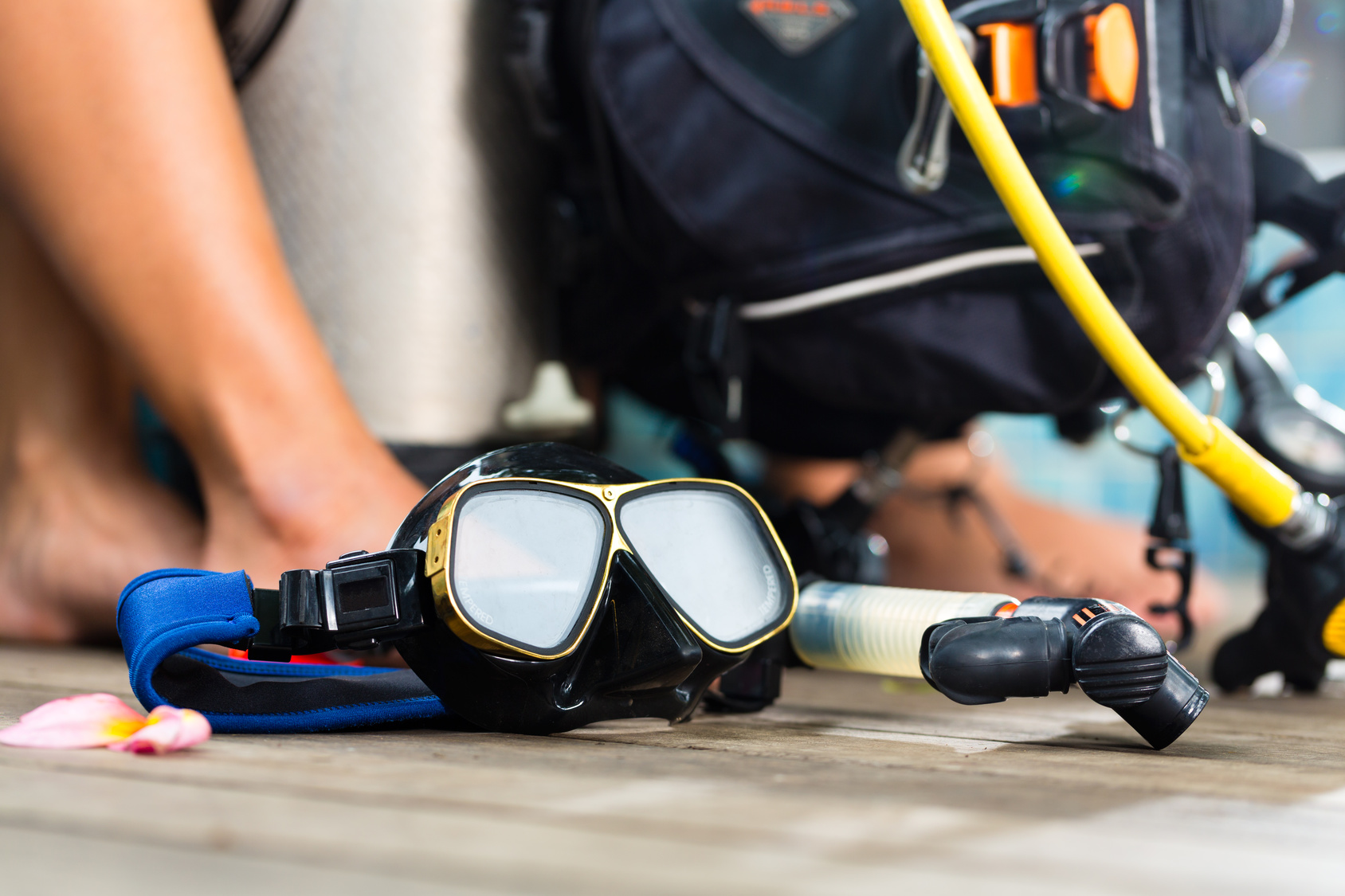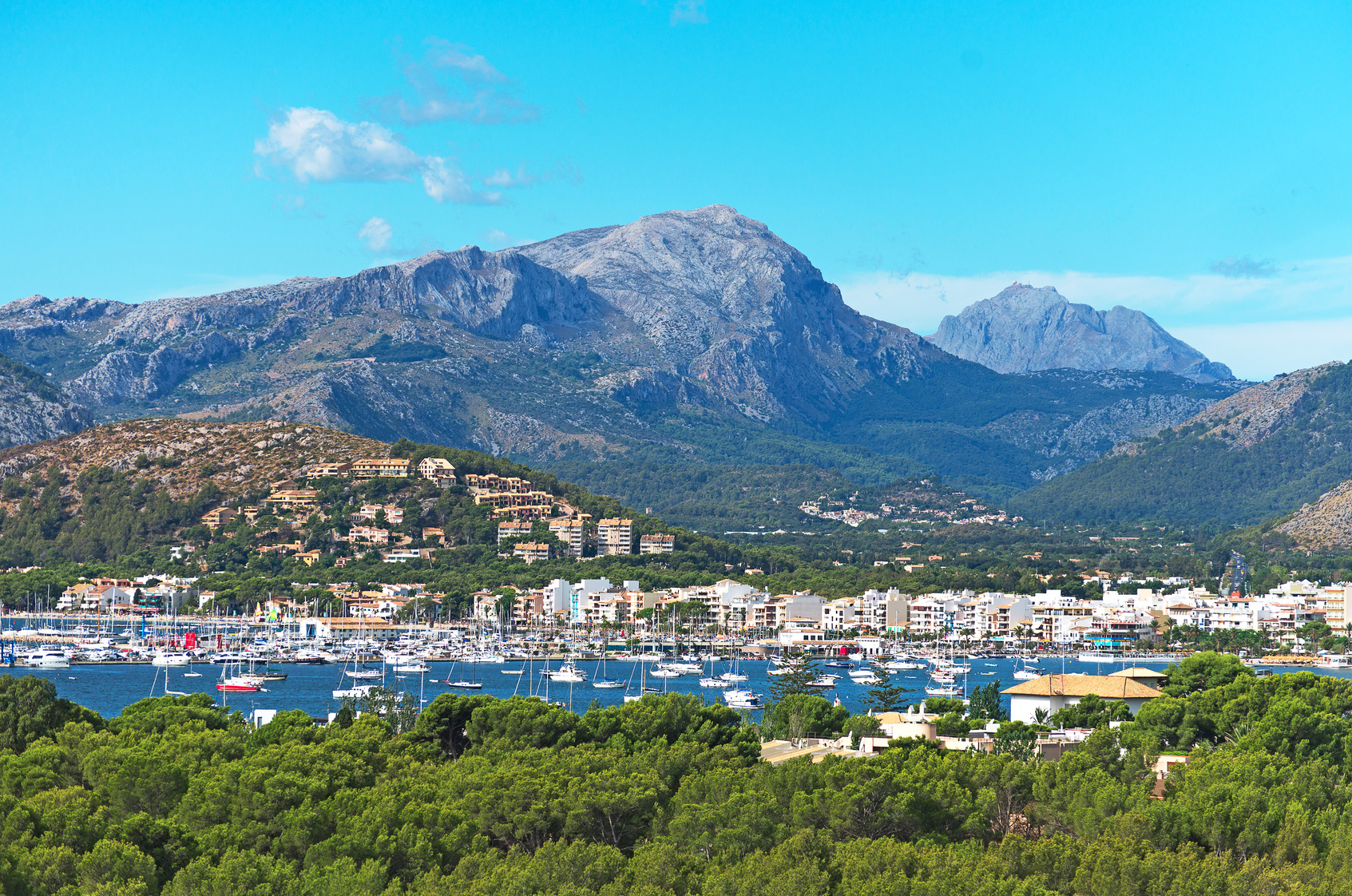Located on the north-west coast of South Korea the port city of Incheon is the gateway to Seoul, the nation’s capital. Until recently cruise ship traffic visiting Port Incheon was limited to a small number of Asian vessels. However, the recent opening of its magnificent new cruise terminal should see a marked increase in cruise ship passengers arriving here from international cruise lines.
Whilst it is an option to spend a day in port around Incheon the big attraction for most passengers is to take a trip into Seoul to see its main sights. Highlights include the great Joseon Palaces, the N Seoul Tower and Gwangjang Market. Some shore excursions also include a visit to the Demilitarized Zone (DMZ) to the north of Seoul which separates North and South Korea.
Port of Seoul (Incheon)
The Port of Incheon lies 50km south-west of downtown Seoul. Until recently it was a minor destination for cruise ships catering only for a small number of mainly Chinese arrivals. However, in April 2019 a new cruise terminal opened in the Songdo international business district of Incheon which is now Korea’s largest cruise port. This state of the art complex can accommodate the world’s largest cruise ships which carry up to 9,000 passengers. The project also includes the building of leisure facilities and hotels which the Incheon Port Authority hopes will eventually see around 3 million people per year visiting what has been named the “Golden Harbor”.
Seoul-Incheon International Airport
Travellers heading for Incheon will arrive at Seoul–Incheon International Airport which is located on Yeongjong Island to the north-west of the port city. The AREX train from the airport travels to Incheon with a change to the subway line at Gyeyang. Direct buses from outside Terminal 1 are also available.
The fastest and most convenient way to get from the airport to the port is by road, a journey which crosses the spectacular Yeongjong Bridge. Taxis are readily available for the 40km trip otherwise you can pre-book a private transfers from Seoul International Airport to Port Incheon as well as to hotels in Seoul.
Getting Around
Cruise ship passengers who decide to stay in Incheon during their time in port can get around by local taxi. Drivers often don’t speak English so you should write down your destination before getting in the car. The city also has an excellent subway which reaches all of its main districts together with an extensive public bus network. Travel cards can be purchased at convenience stores.
For those passengers who decide to travel into Seoul independently rather than taking an official shore excursion the best means of transport is the Seoul Metropolitan Subway. Just take a taxi from the port to Incheon Station on Line 1 and get off at City Hall Station. The journey takes around 70 minutes and leaves you within walking distance of some of the city’s main tourist attractions. There are also bus and taxi services but the road journey into Seoul from Incheon is notoriously slow. On your return journey be sure to take a train which is heading for Incheon Station as some services branch off to other destinations.
Travel Tip: Once in Seoul the best way to get around is to buy a Metropolitan Pass (MPASS) which provides for subway journeys around the city. Alternatively, there’s a popular bike share scheme which allows cyclists to get around on dedicated cycle lanes.
To avoid the confusion of travelling on Seoul’s public transport network it is advisable for cruise ship passengers to consider taking an official shore excursion with their cruise line or with a local operator.
Tourist Attractions in Incheon and Seoul
Incheon
Incheon is South Korea’s 3rd largest city with a population of around 3 million people. Much of its population growth in recent times has been due to the importance of its port, its proximity to the capital and its designation as a ‘Free Economic Zone’ (IFEZ) which attracted a lot of international investment. Most cruise ship passengers visiting Incheon will plan on heading into Seoul on arrival, however, there are some local attractions worth visiting for those who prefer to stay local:
MacArthur Statue: Standing in Jayu (Freedom) Park this statue is dedicated to General MacArthur who led the United Nations Command against North Korea before the Chinese intervened in the Korean War.
Chinatown: Incheon is home to Korea’s only recognised Chinatown which is filled with colourful shops and restaurants.
Hot Springs: Incheon has been known for its its therapeutic hot springs ever since the Joseon Dynasty (1392–1897). Some of the city’s hotels allow visitors to use their spa pool facilities.
Seoul
Not surprisingly for most cruise ship passengers the main attraction of Port Incheon is its accessibility to the South Korean capital. Once visitors have made their way into the centre of Seoul by means of public transport or on an official shore excursion the main attractions to look out for are as follows:
Gyeongbokgung Palace: This served as the main royal residence of the five grand palaces built under the Joseon dynasty. It was destroyed by the Japanese during the Imjin War (1592–1598) and was abandoned for around 200 years. Having been rebuilt it was again largely destroyed in the early 20th century during the Japanese occupation. Restoration efforts remain ongoing. Visitors can watch a changing of the guard ceremony outside the palace at 10am and 2pm daily (except Tuesdays).
Changdeokgung Palace: This UNESCO’s World Heritage Site is the most beautiful of the city’s grand palaces. It too was destroyed in the 16th century but was rebuilt to serve as the main royal residence whilst Gyeongbokgung was unavailable.
N Seoul Tower: Visitors can walk or take a cable car up Mount Namsan then take a lift up the 236 metre high N Seoul tower. At the top there’s an observation deck offering terrific views over the city’s skyline and the popular HanCook Restaurant which is highly regarded for its buffet lunch.
Gwangjang Market: This is one of the best places to sample typical Korean street food. Find a seat alongside one of the stalls and order some local favourites such as tteokbokki (spicy rice cakes) or dak-kkochi (marinaded chicken on skewers).
Bukchon Hanok Village: In contrast to modern-day Seoul this 600 year old village is a throwback to life under the Joseon Dynasty. The main attractions of the village include the sight of hundreds of traditional Korean homes (hanok), its craft workshops and its vendors selling typical Korean street food.
War Memorial and Museum: Anyone interested in military history will be fascinated by this large museum which is mainly dedicated to telling the story of the Korean War (1950–53).
Jogyesa Temple: Dating back to the 14th century this is the country’s main temple for Jogye Korean Buddhists.
Shore Excursions from Port Incheon
Transport into Seoul with a city tour of the main attractions is the most popular shore excursion from Port Incheon. This trip can be combined with a visit to the Korean Demilitarized Zone which was created at the end of the Korean War (1950-53). It’s a 4km wide buffer zone which separates South Korea from the North. Visits are only possible on official excursions which include entrance to the Joint Security Area (JSA) at Panmunjeom where all negotiations between the two sides has taken place since 1953. Visitors will also see infiltration tunnels built by the North Koreans and will be able to look across at the Democratic People’s Republic of Korea from various observation posts.
Another recommended excursion if time permits is to the Hwaseong Fortress which was built towards the end of the Joseon Dynasty. Located 30km to the south-east of Incheon it is a UNESCO World Heritage Site which is best best visited as part of an official shore excursion.
About Shuttle Direct
Shuttle Direct is the most established and respected airport transfer provider in Europe and northern Africa. Our friendly local drivers will ensure your safe, economical, and convenient passage to and from the cruise terminal, airport, or major train station of your choice with a minimum of fuss. Book your transfer with our easy to use online booking system and leave the rest up to us!

